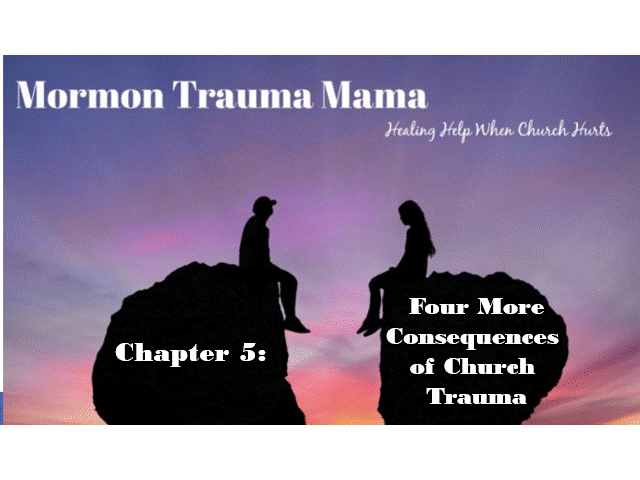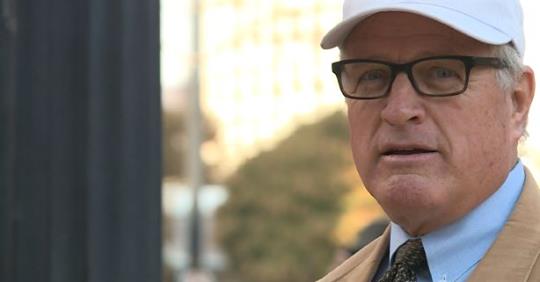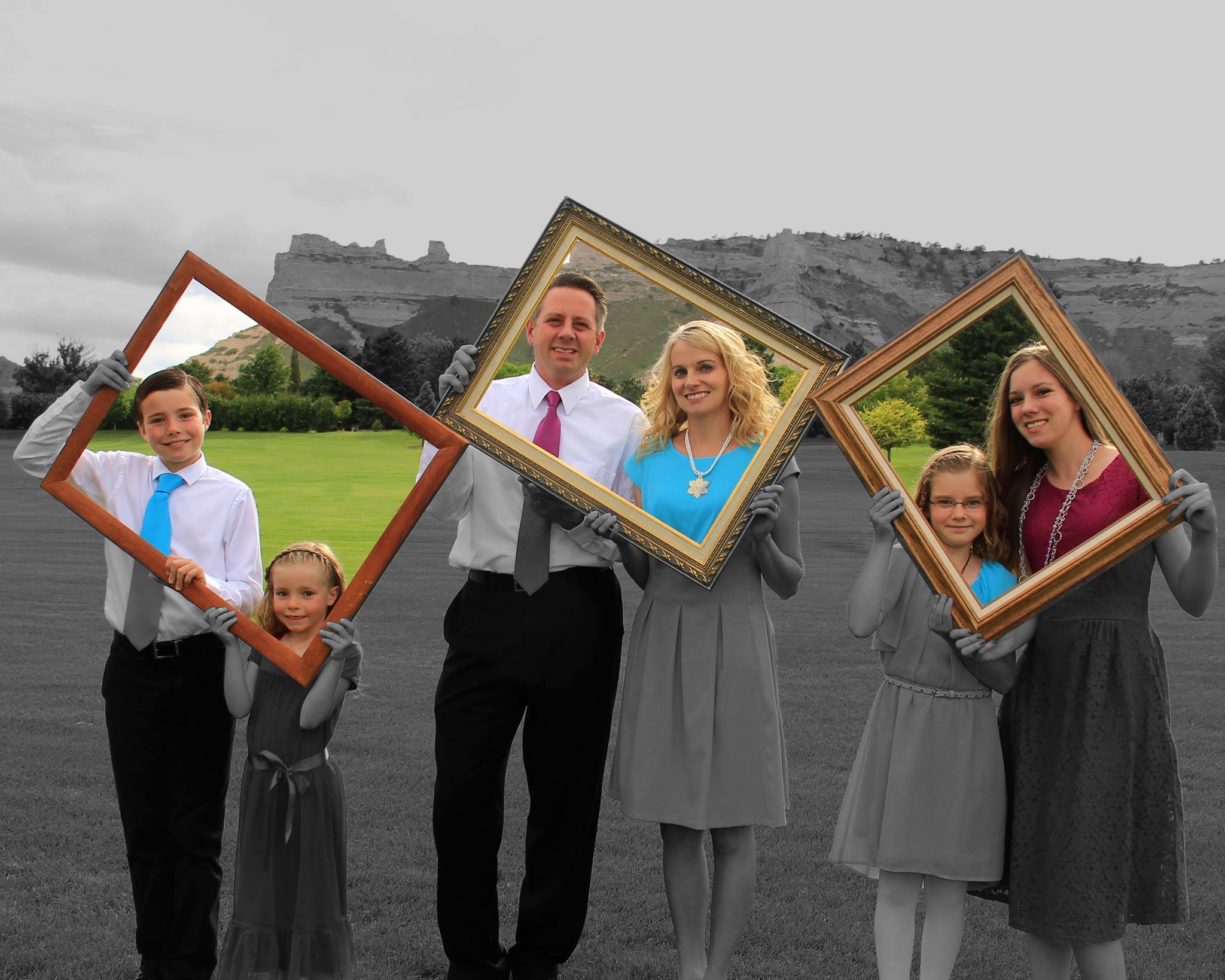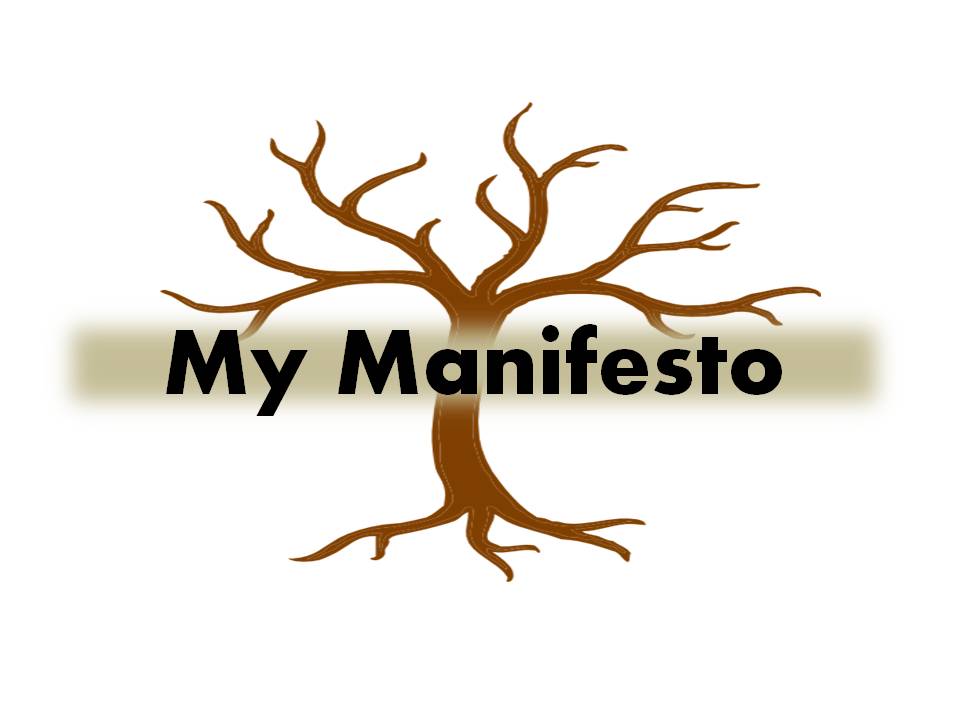Dissonance
- Abuser Loyalty, Acceptance, Anger, Church doctrine, Church Exodus, Codependency, Cultural Behavior, Danna Hartline's articles, Depression, Discrimination, Dissociation, Dissonance, Effects of Trauma on the Family, Fear, Fellowship, LDS Women, Leadership, Mental Illness, Modesty, Mormon Culture, Organizational Behavior, Patriarchal Structure, Post Traumatic Church Syndrome, Self-Care, Self-trust, Sex, Shame, Suicide, Trauma vs. Offense, Unrighteous Dominion, Unsafe policies
Chapter 5: Four More Consequences of Church Trauma
Chapter 4 discussed four common effects of Church Trauma: cognitive dissonance, church exodus, dissociation, and abuser loyalty. This chapter addresses four more consequences of Church Trauma: loss of identity, mental disorder, family dysfunction, and shame. Loss of Identity Trauma messes with concept of self. After one is traumatized by the Church, victims often have no idea who they are anymore. The Mormon Church is not just a religion; it’s a lifestyle. Hence traumatization can cause a complete upheaval to a person’s construction of reality, including the self, other people, life, and the future. Few can appreciate the sheer terror religious trauma can create (Tarico, 2015). Many considerations must be examined—“Should…
- Abuser Loyalty, Anger, Church doctrine, Church Exodus, Codependency, Cultural Behavior, Danna Hartline's articles, Depression, Dissociation, Dissonance, Fear, lds culture, Leadership, Mormon Culture, Organizational Behavior
Chapter 4: Four Consequences of Church Trauma
Consequences of Church Trauma Now that we have discussed many of the causal factors of church trauma (see chapters two and three) within the Mormon Church, it is important to also look at the consequences of traumatic situations found there. Although the focus will be on consequences of trauma in the Mormon faith, it is important to note that these consequences can be found within most sufferers of church trauma, regardless of the religion. Indeed, because of church trauma, we see many serious side effects, including the following: cognitive dissonance, church exodus, dissociation, abuser loyalty, loss of identity, mental disorders, family dysfunction, and shame. Each will be discussed below: (Added…
- Abuser Loyalty, Church doctrine, Church history, Codependency, Cultural Behavior, Danna Hartline's articles, Discrimination, Dissonance, lds culture, LDS Women, Leadership, Modesty, Mormon Culture, Organizational Behavior, Patriarchal Structure, Priesthood, Racism, Shame, Unrighteous Dominion, Unsafe policies
Chapter 3: Five More Causes of Trauma in the Mormon Church
Chapter 2 addressed three causal factors of trauma in the Mormon Church: Unsustainable History, Church Doctrine, and Unsafe Policies. This chapter addresses five more: Patriarchal Structure, Organizational Behavior, Cultural Behavior, Unrighteous Dominion, and Discrimination. Like Chapter 2, the discussion is just an overview and is not comprehensive. Further, not all causal factors of trauma are addressed in my thesis, as there are potentially several but I tried to hit on some of the main factors. If you have not yet read Chapter 2 or Chapter 1, it might be beneficial before or after reading this chapter. Pictured below is the Church Trauma Tree that was referenced in Chapter 2. Patriarchal…
- Acceptance, Courage to Speak Up, Danna Hartline's articles, Depression, Dissociation, Dissonance, Effects of Trauma on the Family, Empathy, Examples of Courage, Fellowship, Healing, Lost Sheep, Love, Shame
The Pendulum Swing of Trauma–And How It Pertains to Religion
I have a very dear friend that I’ve known since college who is in an extremely hard situation. After being married to her husband for over two decades, she finally gained the courage to leave him. Over the course of many years, he locked her in closets, drugged her, convinced her she was masturbating in her sleep and tied her wrists to the bed, beat her, choked her until she passed out, dragged her by the hair out of the shower and across rooms, manipulated all of the people around him—including their children—to believe his every word, etc. He even had his church leaders completely won over and held high church positions throughout their…
- Courage to Speak Up, Depression, Dissociation, Dissonance, Effects of Trauma on the Family, Empathy, Healing, lds culture, LDS Women, Leadership, Lesley Butterfield's articles, Love, Mormon Culture, Post Traumatic Church Syndrome, Priesthood, Racism, Shame, Suicide, Unrighteous Dominion
What Are The Roots Of Mormon Trauma?
SHHHHH! I want to share a secret with you. I already wrote this article. I’ve been writing this article on Mormon Trauma for a few weeks now actually. And I have struggled with it. Originally, I wrote this article with the intention that I did not want to alienate anyone because church trauma within the LDS faith is not widely known. I did not want to be deemed an anti-Mormon or apostate because of what I wrote. I did not want to be called a sensationalist. I didn’t want to hear that I was too angry or hateful. I wanted to avoid being told I was over-reacting or being too…
- Codependency, Courage to Speak Up, Danna Hartline's articles, Dissonance, Effects of Trauma on the Family, Healing, lds culture, Leadership, Mental Illness, Mormon Culture, Self-Care, Self-trust, Shame, Suicide, Trauma vs. Offense, Trust the Lord
Church Trauma Is More Common than You Might Realize
Last month the Mormon Trauma Mama team hosted an invitation-only summit called When Church Hurts to talk about the problems we are seeing with church trauma and how we can promote awareness, healing, and change. We are still working on solutions to this problem—and will be for many years to come! But at the summit, I introduced a man who had a similar dilemma. Maybe you have heard about him. His name is Ignaz Semmelweis. Semmelweis was a fascinating man. He was a European doctor, an obstetrician, in the mid-1800s. He worked at Vienna’s General Hospital, an important research hospital, where he tried to get to the bottom of a…
- Abuser Loyalty, Danna Hartline's articles, Depression, Dissociation, Dissonance, Effects of Trauma on the Family, lds culture, Leadership, Mental Illness, Mormon Culture, Post Traumatic Church Syndrome, Shame, Suicide, Trauma vs. Offense, Unrighteous Dominion
The Church-Trauma Tree
Let me introduce myself. Maybe you know me. I’m Danna Hartline. I am the founder and creator of the Mormon Trauma Mama—this website right here—which focuses on church trauma and healing. If you are a follower, I hope you’ve found it helpful. I have an incredibly talented team that works with me—maybe you’ve noticed! My team and I also run a Facebook group called LDS Church Trauma and Healing. As a team, we are also organizing an invitation-only summit this fall called When Church Hurts. We are bringing together some of the top minds in this movement to collaborate and support each other’s efforts as we work on raising awareness about…
- Acceptance, Anger, Danna Hartline's articles, Depression, Dissonance, Empathy, Examples of Courage, Healing, Love, Self-Care
Growing Up Is Hard Work
Let us not deny it: Growing up is hard work. I’m learning that. For years I thought growing up just came with age but I’m learning that it’s something I get to choose to do—or not do. And today was a test in growth. It hit rather subtly. I thought I was doing so well and I have been. I have been really paying attention to my self-talk and not being reactive but today I felt I lost all grounding. For a moment, the stresses seemed to be too much. I “broke,” something I haven’t done for some time. (A tendency I have is to feel everyone else is allowed to…
- Danna Hartline's articles, Dissonance, Effects of Trauma on the Family, Healing, Mormon Culture, Self-Care, Unrighteous Dominion
What Is Mormon Trauma?
One of my personal favorite powerhouses of our day is an LDS woman, Liz Wiseman. She spoke at a BYU Devotional a few years ago on “The Power of Not Knowing.” While I loved her message, those words struck me anew when I sat down to write this article. The power of not knowing… Although Wiseman was talking about having the courage to move forward through uncertainty and new terrain, the idea of not knowing—of being ignorant or even “dumb”—can indeed sometimes be very deceptively empowering. When we truly don’t know—but think we do—we can teach certain principles and subjects with conviction because we may not have any knowledge of…
-
Mormonism Can Be Good; Mormonism Can Be Bad
Travis and Devin are both active in the LDS Church. They both perform their church duties, pay their tithing, read their scriptures, and pray daily. However, their motivations for doing so are totally different. Travis’s reasons for church attendance and personal commitments are due to intrinsic motivations—because of deep devotion to God; while Devin’s purposes are extrinsic motivations—because of the need to appear “good” and for social status. It sounds pretty simple to say that Travis is on a higher plain than Devin and that Travis will fare better than Devin in the long run. We often hear this. (“I don’t go for others; I go to strengthen my relationship…

















